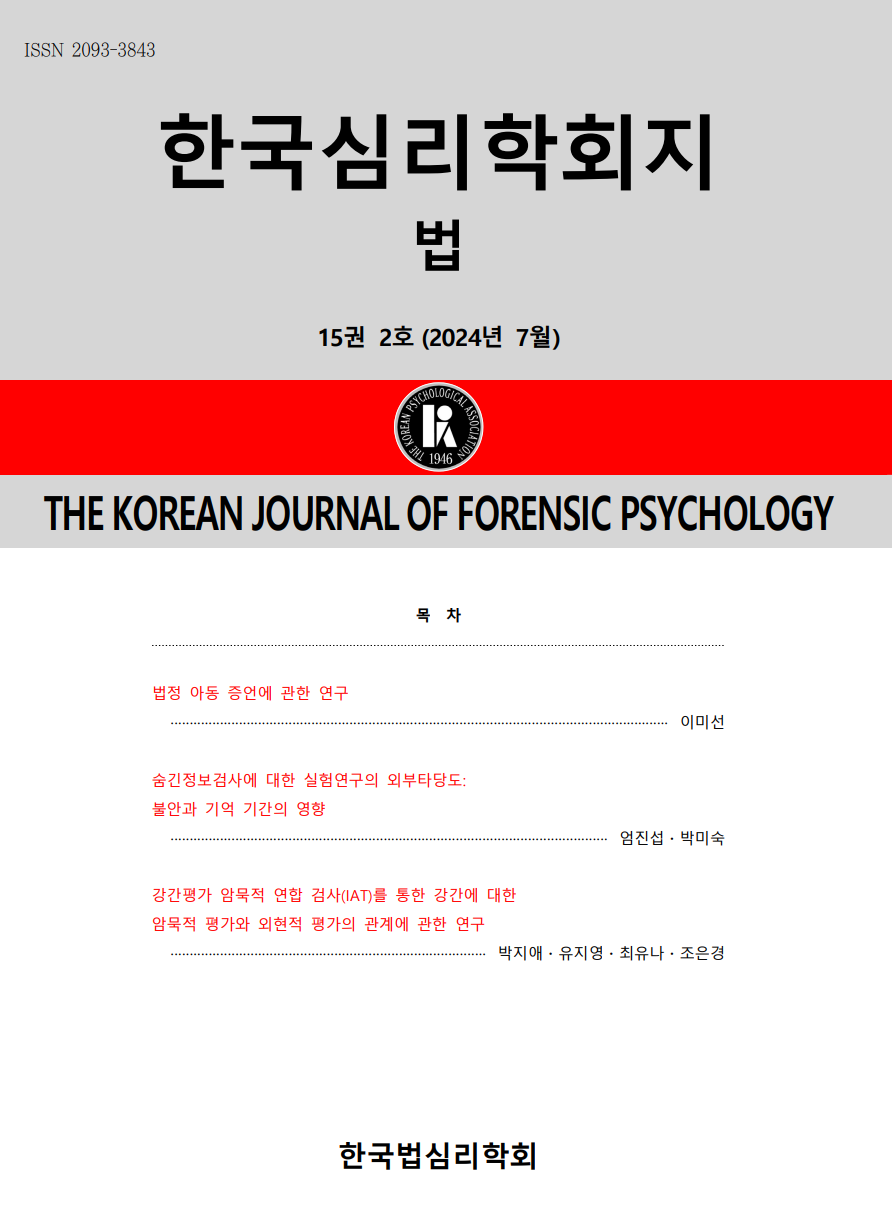open access
메뉴
open access
메뉴 ISSN : 2093-3843
ISSN : 2093-3843
This study is aimed to investigate whether and how ego depletion influences making judgments objectively and judgments of punishment when evidences are presented in a serial manner. We hypothesized that the group of ego depletion would less deliberate on counter evidence and thus the group would give more judgments of guilty and heavier sentencing judgments than a control group would. 62 participants randomly were assigned to ego depletion group or control group. Consistent with our hypotheses, the results showed that the group of ego depletion less consider the evidences against prior arguments than the control group. More importantly, the group of ego depletion, compared with the control group, convinced the suspect of the crime more and gave heavier sentencing. In addition, we found that the extent of consideration for counter evidence mediated the effect of ego depletion on sentencing. These findings imply that the ego depletion could have effects on jurors’ decision-making process and their judgments. The limitations of the study and the suggestions for further research are discussed.
The Concealed Information Test based on P300 (P300-CIT), which has been widely used in detecting deception, uses mainly target, probe, and irrelevant stimuli to obtain P300 event-related potentials (ERPs) and compares them to judge guilty or innocent. Researchers have used the applications of bootstrapping as the useful methods for determining significant difference between P300 ERP components of the stimuli. However, relatively few research comparing the classification accuracy of the bootstrapping analyses have been reported. On the basis of previous research, six widely used bootstrapping methods (bootstrapped correlation difference (BCD), base-to-peak bootstrapped amplitude difference (BAD) peak-to-peak BAD, modified BCD, modified base-to-peak BAD, modified peak-to-peak BAD) were selected and compared. Thirty participants were randomly assigned to the guilty and innocent groups. The P300 components were acquired to compare the classification accuracies by different bootstrapping analyses. Using 90% confidence level, which has been most widely used, as a guilty criterion of bootstrapping index, the peak-to-peak BAD showed the highest accuracy. On the other hand, the BCD methods showed relatively lower accuracy. Furthermore, the modified BAD methods applied to the other criteria including indeterminate category(90%/30%, 60%/40% confidence level) showed high level of accuracy with reduced rate in indeterminate category.
Self-defense reflects the function of law in situation where the elements of a crime are satisfied, but the legality is denied. While the Criminal Procedure Law in South Korea and Japan aims at securing social order and guaranteeing individual rights, Amendments in the United State focus on ensuring individual rights and freedom. The couple of functions and purposes of the law would be differently influenced as the legal culture to the lay people's judgment of self-defense. 202 Korean, 64 Japanese and 190 American college students participated. As a result, the proportion of accepting self-defense by the Americans was significantly higher than the Koreans and Japanese, and there was no difference between Koreans and Japanese. It was suggested that legal culture exerts influence on the judgment of the self-defense.